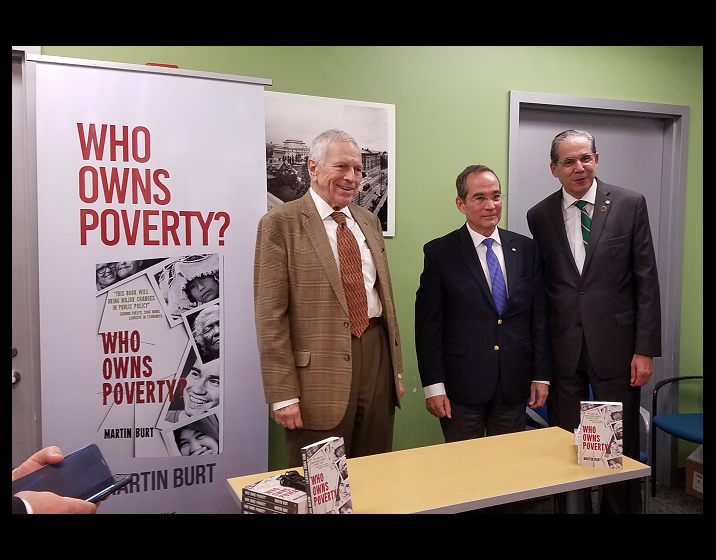"Who Owns Poverty?" Book Launch
On Tuesday, September 24th, Center Director Edmund Phelps introduced Martin Burt, Founder & CEO of Fundacion Paraguya, at the launch for his new book, "Who Owns Poverty?"
A copy of his introduction is as follows:
Introduction: Martin Burt’s Who Owns Poverty?
It’s a great pleasure to introduce Martin Burt. As most of you know, it is safe to say that he is the world’s most innovative thinker on overcoming poverty of our time.
He is Founder & CEO of Fundacion Paraguaya, an NGO devoted to developing solutions to the elimination of poverty. He has also become as pioneer in microfinance, youth entrepreneurship and financial literacy.
He is not new to academia. He has a doctorate from Tulane University, he is a Visiting Professor of Social Entrepreneurship at Worcester Polytechnic Institute and he is Distinguished Visiting Professor of Social Entrepreneur-ship at the University of California, Irvine.
He has become a global presence by now. He is a member of the Board of Directors of both the Schwab Foundation for Social Entrepreneurship at the World Economic Forum and the Global Foodbanking Network. In his native country, he has served as Chief of Staff of the President of Paraguay and Mayor of Asuncion.
It is not entirely accidental that Martin is here at the Center today. In considering the poor, he has grasped that there is much more to be said than the fact that they have less income. In many cases, they have overlooked ways to overcome what is holding them back or, after interactions with experts, they can acquire what they need to get ahead. It’s a matter of information or knowledge, generally both. I think it’s an implication of Martin’s view of poverty that money would not generally solve their problem or problems – though, of course, it is better to have more money than not to have more money. It’s bad experience and the lack of good experience that are at the heart of poverty.
Somewhat similarly, some of us argue here at the Center that standard economics is mistaken in regarding work as something that is valued only for the money, so if there is no more work but people could go on having their paychecks, that would be fine with people. People value good jobs – jobs offering interchange, problem-solving and, perchance, the stimulus of having a new idea.
I’ve been pointing out that we are overlooking the huge importance of the experience of work – job satisfaction. Most people are highly engaged in their work. Martin has been pointing out that the poor are not just lacking in pay. They are lacking in terms of the experience of work and the experience of life. To paraphrase a past president of this country, just throwing money at people is not what most people want.
